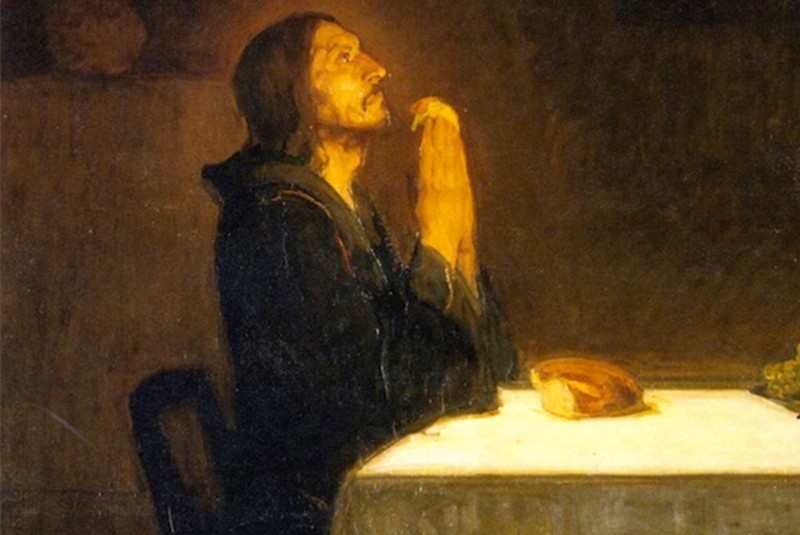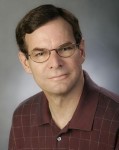Believing in Life After Death and Coping with Grief
Death is a natural phenomenon in life and requires adaptation both by those who return to the Spiritual World and those who stay on Earth. The feeling of missing someone is manifested on this side of existence just as much as on the other, since Fraternal Love keeps Souls united. Grief is a process that must be respected. It is human. We must understand and support those going through it so that no one feels alone at that moment. However, we cordially recommend, as always, that no vibration of sadness be cultivated, for it reaches the Spirit in recovery, which is much more sensitive to whatever he or she is receiving from others. That explains the need to have happy memories of those who went to the Great Land of Truth before us and to have them receive only the best from our hearts. That will certainly encourage us and make us strong to overcome any and all adversities along the way. The certainty that our loved ones continue their journey to the Beyond1 enables us to deal with such moments.
Let us remember these encouraging words Jesus addressed us in order to ease the pain of the heart so that we overcome anything with His Blessed Protection: “Come to me, all you who are weary and burdened, and I will give you rest. Take my yoke upon you and learn from me, for I am gentle and humble in heart, and you will find rest for your Souls. For my yoke is easy and my burden is light.” (The Gospel according to Matthew 11:28-30)

Healthcare workers have been improving their knowledge to efficiently assist those who are going through challenging situations. The word used in their community is “coping” and it implies to succeed in dealing with a difficult problem. One of the aspects that has been investigated is the impact of the belief in life after death and how that is manifested when someone dies.

Dr. Kenneth Pargament
The Super Good Will Communications Network (radio, TV, the Internet, and publications) had an exclusive interview with one of the most renowned scholars on the Spirituality-Psychology interaction, which resulted in significant analyses of the influence of Religion on mental health. We are talking about Dr. Kenneth Pargament, Professor Emeritus of Psychology at Bowling Green State University (Ohio, USA) and author of The Psychology of Religion and Coping: Theory, Research, Practice. He explained: “People who have beliefs in an afterlife are often supported and sustained by that. One of the most important elements of that belief is the feeling or the experience that those who died before us are still present and that we can connect to them, that we can experience their loving thoughts, sometimes their advice. Some people have a sense that their loved ones are talking to them at times. This is not a sign of psychopathology or craziness. It is pretty natural and normal. As a matter of fact, many, many people, surveys show, have experiences of connection to people who have died. . . . I had a client who was feeling very isolated and alone in the hospital. She did not have family or friends, and her parents had died a few years earlier. She was very distraught, very upset. And when I saw her next in the hospital she looked much better. I said: You are looking better. What is going on? And she said that the other night she was sleeping and, when she woke up, she saw her parents who had died by her side and they were holding her hand and telling her they loved her and they would be with her. And my client did not show any sign of psychosis or major psychological problems. It was more a spiritual experience that was very powerful and meaningful to her.” [Emphasis added.]
Having written hundreds of scientific articles on Spirituality, Religion, and Psychology, and based on his clinical experience, Dr. Pargament concludes that the spiritual dimension of human beings must be taken into serious consideration: “We are not only physical, social, psychological beings. We are spiritual beings. And we find that out when we pay more attention to that dimension and when we integrate it in the ways we think about people. Spirituality is not separate from the rest of life. It is interwoven in the dimensions of life; it is interwoven in Biology, Psychology, relationships. And when we look at people as whole human beings, biopsychosocial, spiritual beings, it enhances our ability to help them deal with the full range of life challenges and problems.” [Emphasis added.]

My dear Friends, Brothers, and Sisters, I always like to reiterate that the Spiritual World is not abstract, indefinite. It really exists and is filled with spiritual energy and work. We cannot see it yet due to frequency—an obstacle to be unveiled by competent scientific activities and overcome through the evolution of our physical senses, which will open up to new heavens and new worlds.
When Jesus said, “My Father is always at His work to this very day, and I too am working. . . . My Father’s house has many rooms; if that were not so, would I would have told you that I am going there to prepare a place for you?” (The Gospel according to John 5:17 and 14:2), the words of the Divine Pedagogue evidence the existence and active work of the Spiritual World over the material world, through the Guardian Angels, for example. Therefore, we must all be aware of such exchange and know how to deal with such reality, still invisible, to make it an ally in overcoming difficulties, whether personal—spiritual, emotional, or psychological—or collective, in solving world problems.
_______________________
1 Author’s note
“. . . continue their journey to the Beyond” — In my book Os mortos não morrem [The Dead Do Not Die], in the chapter “Electronic Voices from the Beyond,” we find an impressive experience of instrumental transcommunication (ITC) as narrated by renowned Brazilian writer Coelho Neto, when he described the change that occurred in the life of his daughter Júlia, his wife’s, and his own when they were faced by the certainty of the survival of his granddaughter Esther’s Soul. In his words: “what was hope became assurance, absolute assurance . . .”

The comments do not represent the views of this site and are the sole responsibility of their authors. It denied the inclusion of inappropriate materials that violate the moral, good customs, and/or the rights of others. Learn more at Frequently asked questions.